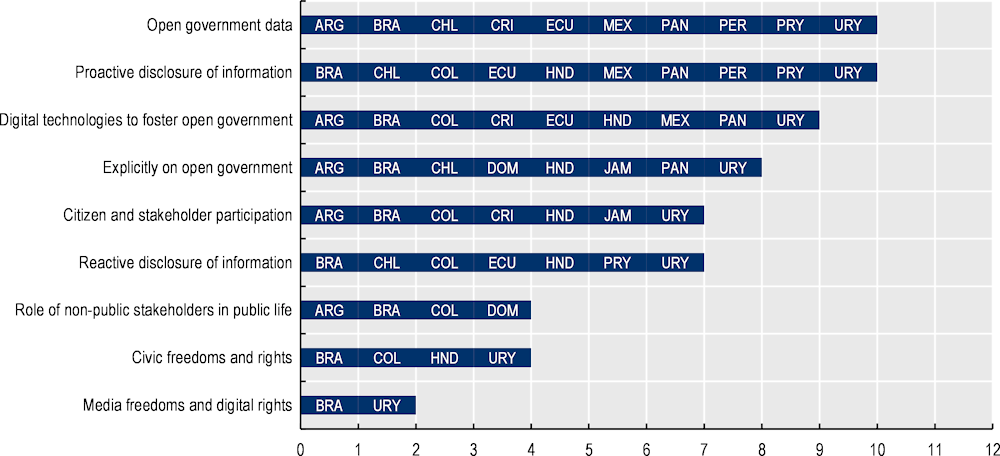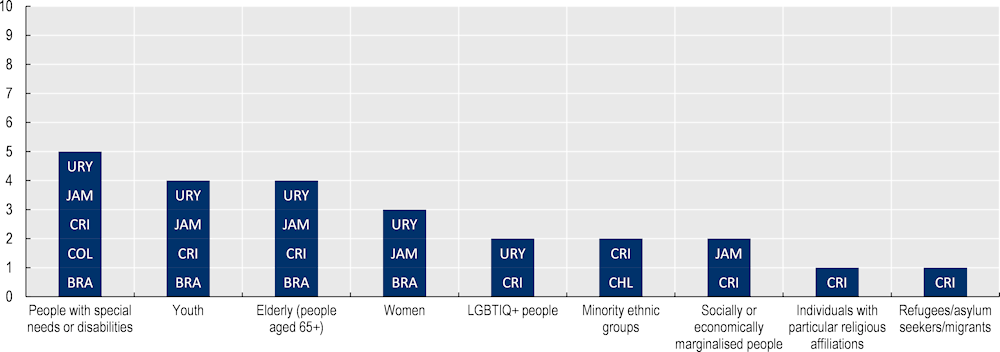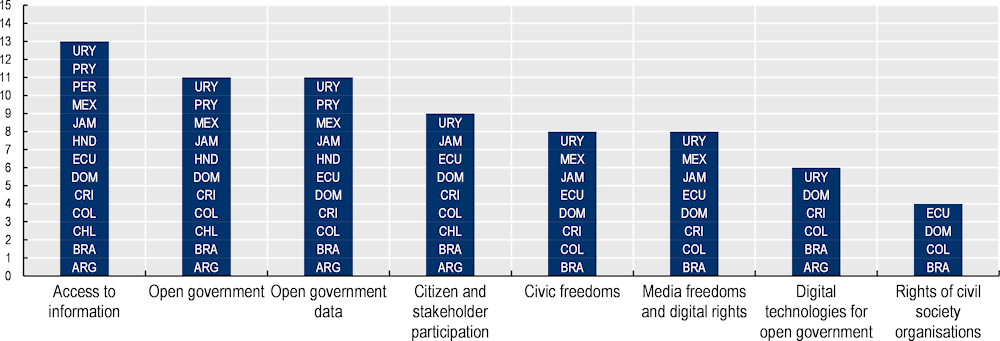The creation of a people-centred governance culture requires the institutionalisation of open government principles and values – transparency, integrity, accountability and participation – in public administrations. Open government literacy refers to “the understanding and capability to effectively use, contribute to, and participate in open government initiatives, including access to information, and public participation in the policy making process” (OECD, 2017). The availability of toolkits, guidelines and training for civil servants on open government is crucial to integrating the principles of open government into the working of public administrations.
Written resources such as guidelines help civil servants to adhere to open government principles and ensure that they can apply them consistently. The most common guidelines in Latin American and Caribbean (LAC) countries are on proactive information disclosure and open government data, both of which are available to public officials in 10 out of 14 surveyed LAC countries with data available (71%). These are followed by guidelines on digital technologies to foster open government (available in 9 out of 14 countries, 64%) and guidelines explicitly on open government (8 out of 14, 57%). However, guidelines on media and civic freedoms are considerably less widespread, with only two countries (14%) offering guidelines on this topic. Brazil and Uruguay stand out, with guidelines on most of the listed open government topics. This comprehensive approach contrasts with the Dominican Republic, Jamaica and Peru, which only have guidelines available on two topics each (Figure 4.7).
Guidelines aimed at promoting participation of specific groups provide directions to public servants on effectively engaging with various segments of the population. Such inclusive engagement contributes on having diverse perspectives and needs for policymaking. In the LAC region, only 6 out of 13 surveyed countries (46%) have guidelines which focus on fostering the participation of specific groups. Within those LAC countries, the most attention is given to people with disabilities, with guidelines intended to foster their participation existing in five surveyed LAC countries (36%), followed by youth and the elderly, with four of the surveyed LAC countries (29%) having guidelines in place. However, individuals with particular religious affiliations, and refugees/asylum seekers/migrants are less covered, with only Costa Rica having guidelines on promoting their participation. Costa Rica stands out for its comprehensive approach with guidelines on fostering participation among eight out of nine surveyed societal groups. The next most comprehensive are Jamaica and Uruguay, both of which have guidelines covering five groups, followed by Brazil with guidelines including four groups (Figure 4.8).
Open government principles can also be instilled into civil servants through training. The most common is training on access to information, delivered to civil servants in 13 out of the 14 surveyed LAC countries (93%), followed by training on the concept of open government and on open government data, both offered in 11 out of 14 surveyed LAC countries (79%). Conversely, training on the rights of civil society organisations is the least common, provided in only 4 of the 14 surveyed LAC countries (29%). Brazil, Colombia and the Dominican Republic are the top performers in this area, offering training to civil servants in all eight of the topics related to open government covered by the survey (Figure 4.9).



